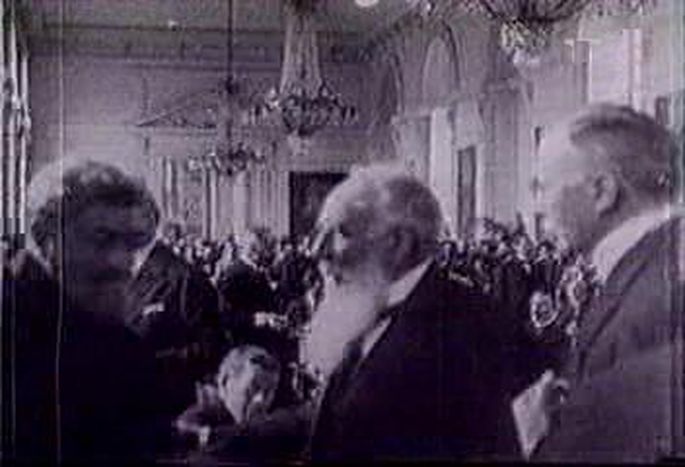
Bringing out unburied dead of the Trianon treaty
Published on
Still a taboo in Hungary, the Trianon treaty, signed on 4 June 1920 at Versailles, put an end to WWI. Today the treaty fuels nationalist debates and division in eastern Europe
According to the Trianon treaty, the country lost 72% of its 325.000 km2 territory and some 64% of its 20.900.000 population. This explains why 1/3 of the currently existing 15 million Hungarians live abroad.
Eighty years have passed, but the Magyars have not yet come to terms with this trauma. This may sound absurd, but the Hungarians still pick on the French due to the treaty. At the time of its signature the French delegation firmly pushed the peace dictate despite the heavy opposition of Hungarian politicians.
Discord around the treaty
Why are the consequences of the Trianon treaty so significant for Hungarians? During the decades before the First World War, politicians in “Great Hungary” did not defend the interests and the rights of the different ethnicities living within its far stretching borders. Nevertheless, by the end of the XIXth century these made up almost 50% of the population. Following the signature of the Trianon treaty hundreds of purely Hungarian towns and villages fell under foreign control. The Romanians, Serbians and Slovaks took their revenge for decades of discrimination.
The “peace” treaties concluded after WW1 aimed at maintaining the defeated nations at their weakest. It is obvious that those treaties were destined to generate even more conflicts rather than long-lasting “peace”.
It is an Eastern European peculiarity that the Trianon treaty has not been addressed officially ever since. In Hungary it is still a political taboo. Indeed even the beloved Hungarian poet József Attila, a well-known communist in the “between-war” period, was not spared. His poem criticizing the Trianon treaty disappeared from his anthologies and only reappeared recently in one of the new editions.
The Trianon-situation is not any better in other countries either. In those countries, politicians sometimes fuel electoral campaigns by invoking the general hatred against Hungarians and the threat of the “Great Hungary”. Although there are revisionist voices among Hungarian marginalised nationalists, these “forces” are far from being dangerous. In some of the surrounding countries, however, overtly anti-Hungarian parties are very strong as in Slovakia. These groups could seriously damage the already fragile relations between the countries of the Carpathian basin.
Resolving conflicts and addressing our past
One could reasonably believe that once these countries join the EU such tensions will disappear. But Europe has shown that it is incapable of solving the ethnical problems of old member states. Tensions in Northern-Ireland, Corsica, the controversy of the Basque situation and the Belgian problem prove this point. Why would the EU be more successful in Hungary?
The conflict around the Trianon treaty will only resolved if it cesses to be a taboo and has a privileged place in the school curriculum.
Trianon must be taught and must be talked about meaningfully. We must cease to always blame the other or whine about our long lost national pride. No matter how painful it will be, we have to finally bury Trianon.
Trianon was not only a political but also a personal trauma. The agreement humiliated Hungarians, divided the land but also separated whole families. But the people did what the Central and Eastern Europeans do well: they learned to live with the new situation and buried their sad memories. Nevertheless the middle-aged and the younger generations can no longer really cope with this attitude of denial. They feel like elephants in the porcelain shop. How can they understand Trianon if the media and the public still treat it as a taboo? Mainstream politics should disarm the extreme right by working by addressing Trianon tpday for future generations.
Until we come to terms with Trianon, the bells will continue to ring every year on 4 June at 4 pm to remind us that our unburied dead are still living with us.



